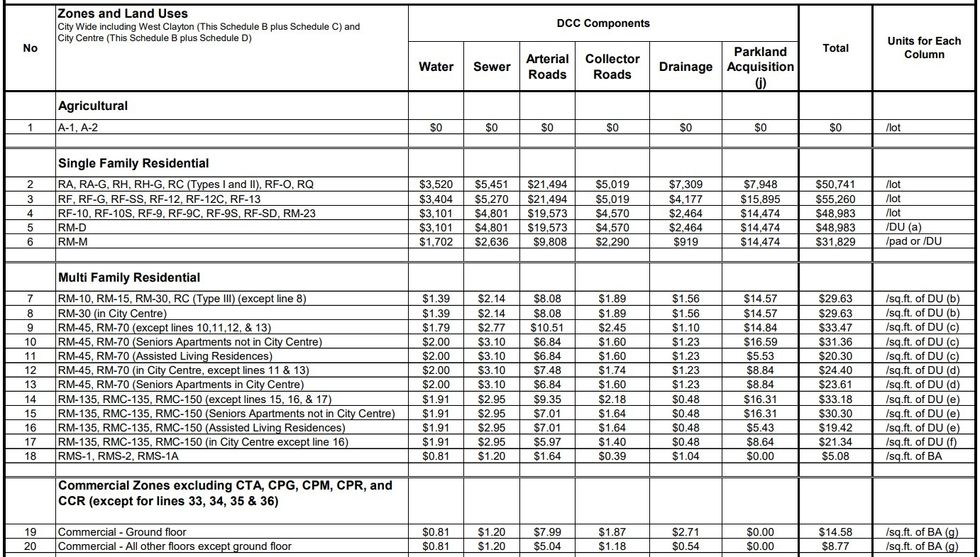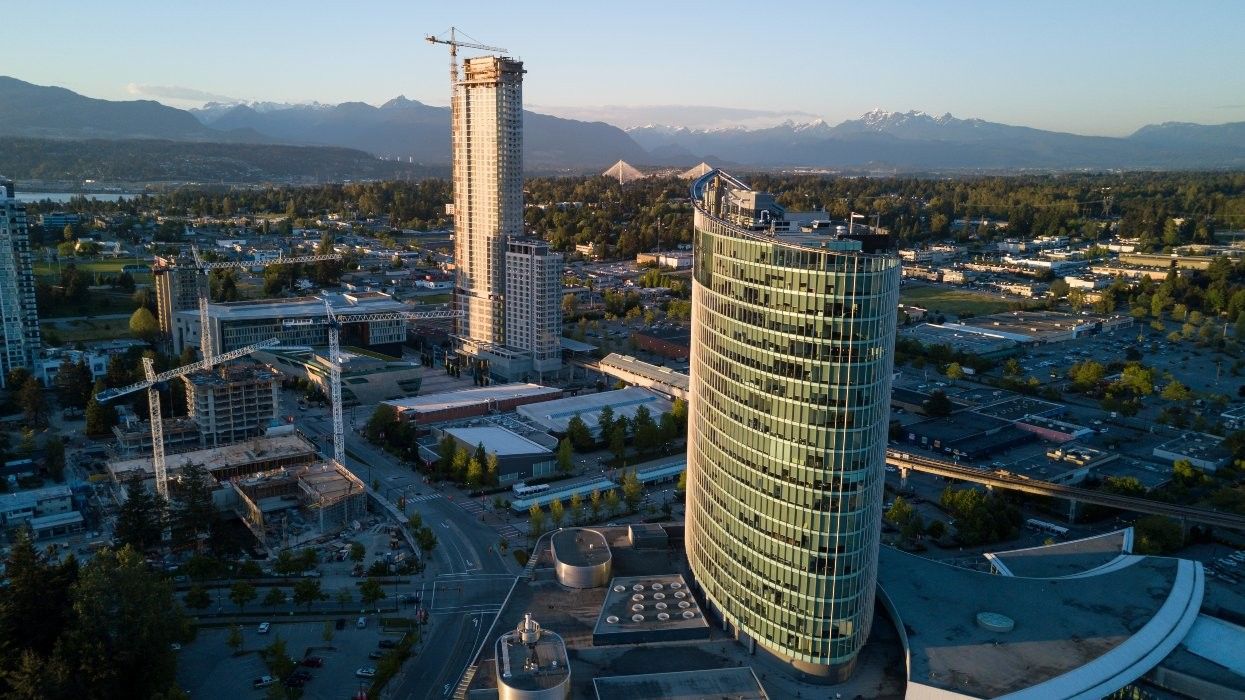On Monday, Surrey City Council approved increases to its development cost charges (DCCs), which are levied on all new development projects in the city.
Like other municipal governments, the City of Surrey uses DCCs to pay for the costs associated with the City's growth, such as road, water, drainage, sewer services, and parkland acquisition. DCCs in Surrey are charged at the subdivision stage and are split into DCCs for each of those components. The rates vary depending on zoning and neighbourhood.
This year, the DCCs associated with roads, water, sewage, and parkland acquisition will increase by 4.3%, which City staff described as a standard Consumer Price Index increase and was recommended "given the City’s current DCC reserves and industry and market pressures on housing affordability."
The DCC associated with drainage will not increase, however, as the City says that it currently has a sufficient reserve.
For water DCCs in single-family developments, which are charged per residential lot, the rate is increasing from $3,375 to $3,520, as one example. Because the drainage DCC is not increasing, the total DCC increase is actually less than the 4.3%. For example, for multi-family residential development in RM-30 zones in the City Centre area of Surrey, the total DCC rate is increasing from $28.47 to $29.63, which amounts to a 4.07% increase.

The City of Surrey reviews its DCC rates at the beginning of each year, and this year's 4.3% increase is likely much more digestible for builders after a significant increase of nearly 10% last year.
As part of this year's adjustments, the City is also eliminating the West Clayton premium DCC, saying that the City-wide DCCs can sufficiently cover the service funding needed for West Clayton.
Additionally, the City is improving its exemption program for DCCs in order to "address housing affordability."
Currently, the City provides exemptions under certain circumstances, such as the construction of not-for-profit rental housing.
Now, it will expand to include any rental housing developments that will be operated by "public housing bodies," which includes BC Housing, the Metro Vancouver Regional District (through the Metro Vancouver Housing Corporation), and CMHC.
For the City, the new expanded exemptions are a commitment agreed to in its Housing Accelerator Fund application that now has to be implemented in order for the City to continue receiving funding. The exemptions will be delivered in the form of rebates, which will essentially be reimbursed for three years through the Housing Accelerator Fund money.
All of the above changes were approved by Council on Monday and will now be forwarded to the Provincial Inspector of Municipalities for approval. Once approved, the new rates will come into effect on Wednesday, May 15, 2024.




















